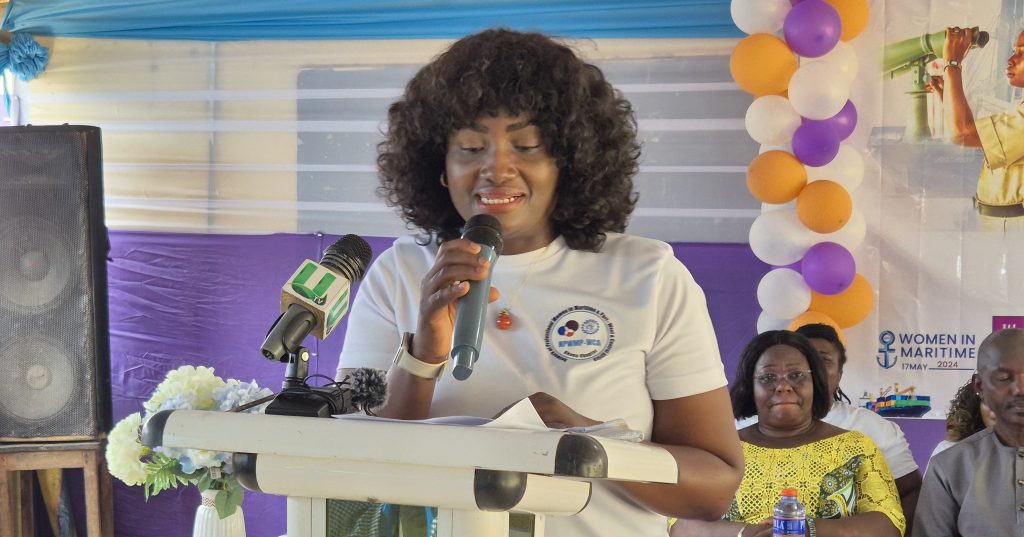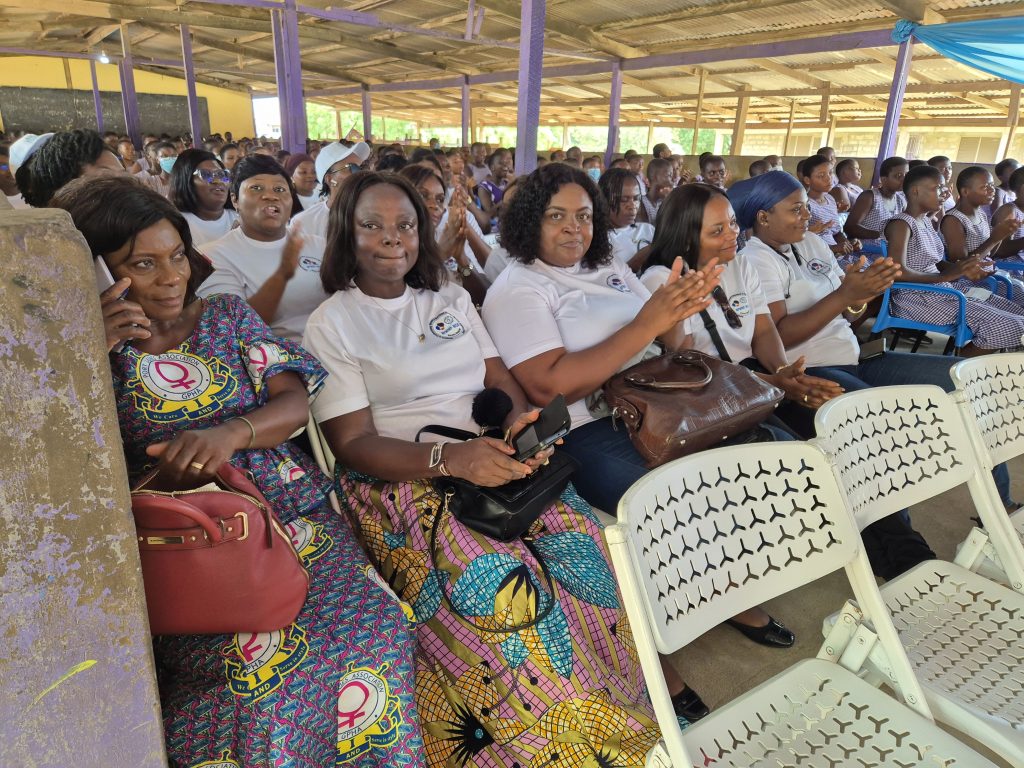By Laudia Sawer, GNA
Tema, May 18, GNA – Members of the Network for Professional Women in Maritime and Port Sector of West and Central Africa (NPWMP-WCA) have organised a mentorship programme to celebrate the International Day for Women in Maritime.
The members of the Ghana Chapter of the Network organised a workshop for 270 female students of the Tema Manhean Secondary Technical School.
The International Day for Women in Maritime, an initiative by the International Maritime Organisation (IMO), has been observed on May 18 annually since 2021, to celebrate women in the industry and promote the recruitment, retention, and sustained employment of women in the maritime sector.
It is also to raise the profile of women in maritime, strengthen the IMO’s commitment to the United Nations’ Sustainable Development Goal 5 on gender equality, and support work, to address the current gender imbalance in maritime.
Ms Abena Serwaa Opoku Fosu, the President of the NPWMP-WCA, Ghana Chapter, said the network was part of the Port Management Association of West and Central Africa.

She said world trade thrived on the maritime industry as 80 per cent of global commerce in merchandise was carried by ships and handled in ports globally.
She explained that while ships sail across vast oceans, there was another journey underway involving breaking barriers and empowering women to chart their course in a traditionally male-dominated field.
“Surprisingly, women represent only 1.2% of the global seafarer workforce. However, since 2015, there has been a 45.8% increase in female seafarers, a positive trend that we must accelerate,” she said.
Ms Fosu said the maritime industry offered various career opportunities for women, such as seafaring, which was gradually seeing the bridging of the gap as women were now working as ship captains, deck officers, engineers, or crew members on ships, and the IMO’s Women in Maritime programme aimed to support them in their seafaring roles.
She indicated that women could also have carriers in port and shipping management, which included managing port operations, logistics and supply chain management, and ship brokerage.
Ms Fosu, who is also the Marketing and Public Affairs Manager at the Ghana Ports and Harbours Authority (GPHA), Tema Port, said women could also play administrative roles within maritime organisations, contributing to policy development and implementation, as well as in maritime law and insurance.
“Apart from these maritime professions, there are a host of other fields. In the port industry, there is human resources, marketing, accounting and audit, civil, mechanical, and electrical engineering, among others,” she said.

She said the maritime sector would thrive when diverse perspectives came together, stressing that gender balance was not just about fairness but rather about maximising potential.
She indicated that one of the core aims of the NPWMP-WCA was to create resource groups for mentorship and personal growth through cooperation, friendship, the exchange of knowledge, and the dissemination of information, and therefore aim to share the success stories of women who have excelled in the maritime industry and encourage girls to pursue their passion, break stereotypes, and explore maritime careers.
She said the mentorship workshop was to stir up in the girls the desire to challenge themselves and embrace the waves of change with the confidence that there was no limit to what they could accomplish.
She disclosed that 10 selected form-one female students had been given a mentor each to be mentored for two years to shape their future careers and guide them holistically in achieving higher education and excellence, indicating that those who would do well in their final exams would be supported in diverse ways at the tertiary level.
Mrs Bernice Ofori, the Tema Metropolitan Education Director, encouraged the girls to avail themselves for such mentorship programme to prepare them for the future, stressing that it was not only selling fish that was beneficial for women along the coast, but they could do more within the maritime sector.
GNA